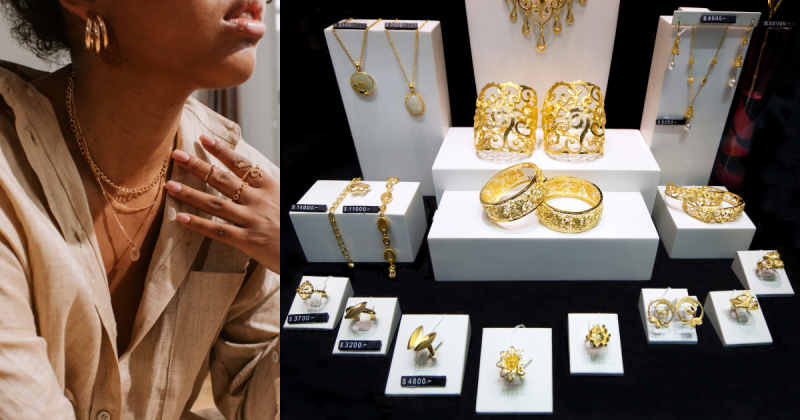Jewelry isn’t just valuable—it carries deep, sentimental meaning, representing memories and milestones. Unfortunately, it’s also vulnerable to theft, loss, or damage, making protection essential. While homeowners’ or renters insurance may provide some coverage, it often falls short with limitations and high deductibles. This is where specialized jewelry insurance comes in, offering comprehensive protection tailored to your needs. Explore key factors, top providers, and how to choose the best policy for safeguarding your treasured pieces.
Why You Need Standalone Jewelry Insurance
You look at your homeowners or renters’ insurance policy and see that there is personal property that covers your jewelry. Don’t be misled. Jewelry is typically limited and covered under personal property with limitations. Most standard policies cap how much they will pay out when lost or stolen for an individual piece, such as $1,000 to $2,000 per piece, far and above the actual value of most valuables. In addition, when you file a claim, there is every probability that your premiums will rise from then onward.
So, what’s the alternative? Standalone jewelry insurance.
Dedicated jewelry insurance is made specifically for jewelry and other valuable items. This kind of policy will cover risks such as theft, loss, accidental damage, and even mysterious disappearance. More importantly, it will not affect your homeowners or renters’ premiums. Some providers allow worldwide coverage, so you are covered wherever you go.
Simply put, a separate jewelry insurance policy puts your mind at ease since you know your jewelry is adequately covered, regardless of whether it is at home or abroad.
Key Considerations When Selecting Jewelry Insurance
Selecting the right policy isn’t a cut-and-dried process. Many factors must be considered to make sure that the coverage is tailored to your needs.
- Coverage: Knowing what you are covered for is important in insuring jewelry. There are two major categories: All-Risk and Named Perils. The All-Risk policy offers very wide coverage, paying for nearly any kind of loss except a few obviously excluded situations. In contrast, the Named Perils policy covers only a few risks specifically listed in the contract-the most common ones being fire, theft, or vandalism. Choosing one type of coverage over another depends on the protection you want over your valuables.
- Replacement Value: Compensation at the time of loss or damage is crucial when choosing an insurance policy. Three primary forms of reimbursement are used: Actual Cash Value, Replacement Cost and Agreed Value. The actual cash value determines the current worth of an item at the time of claim. It takes into consideration depreciation that would likely yield a lower payback. Replacement Cost will provide you with a similar item and prevent depreciation in its calculation, meaning it covers the full replacement cost. Lastly, the Agreed Value is the amount agreed upon by the insurer and policyholder for the item at the start of the coverage, which remains unchanged unless updated.
- Deductibles: A deductible is the amount you must pay out of pocket before your insurance takes effect. Policies with higher deductibles usually have lower premiums, which is a cost-effective option for those who can afford a larger upfront expense in case of a claim. However, choosing a high deductible means you must be financially prepared to cover the initial cost of any loss or damage. Conversely, lower deductibles reduce your immediate financial burden when filing a claim but often result in higher monthly or annual premiums. Striking the right balance between deductible costs and premium affordability is key to finding the best policy for your needs.
- Appraisals: Many insurers require a professional appraisal before granting coverage, particularly for high-value jewelry. An appraisal is a value of the item and used for the determination of the replacement or compensation amount in case of loss. Your jewelry should be assessed by a certified gemologist or professional appraiser to assure accuracy and credibility. Appraisals should be done regularly as the market value may change. Underinsurance may occur or the dispute during the claim. Keeping your appraisal documents up to date can streamline the claims process and guarantee fair compensation.
- Exclusions: It’s important to know what your policy does not cover to avoid surprises. Common exclusions in jewelry insurance include normal wear and tear, gradual deterioration, and damage from pests like rodents. Some policies may also exclude costs related to resizing, routine cleaning, or repairs due to everyday use. Read the fine print to fully understand the limitations of your coverage and take additional precautions if needed. If a policy does not cover certain risks you are concerned about, consider discussing additional coverage options with your insurer.
- Discounts: Insurance providers often offer discounts based on security measures taken to protect your jewelry. Other discounts are offered depending on your ability to keep items safe at home, use a safety deposit box, or have a security system in the home. This might also be available if you engrave your jewelry with a Gem ID. Discounts available for security insurance can save costs and encourage safer practices. Ensure you inquire with your insurance agent about what else you might save and how much you will be eligible for.
- Financial Strength: Before selecting an insurance company, it is important to check its financial strength and stability. A.M. Best ratings and the NAIC complaint index can give an idea of the financial health of an insurer and its reputation for customer service. A company with a good rating will have the means to pay claims quickly and efficiently. You can also check the customer reviews and complaints to have a better view of their reliability and responsiveness. You will reduce the hassle in case you are forced to make a claim when you ensure that your insurer is financially stable.
Reviews of Best Jewelry Insurance Companies
Now that we have discussed what to look for, let’s dive into the details of some of the best jewelry insurance companies available in 2025.
1. Jewelers Mutual
Jewelers Mutual is widely recognized as the gold standard in jewelry insurance and provides total coverage without individual item limits. For those with collections or those having items of particularly high value who need to be fully protected, it is excellent. The company also offers preventative maintenance discounts to its policyholders, allowing them to offset security measures made by them – safe deposit box usage or home security systems, for example.
Jewelers Mutual also has an A+ rating from A.M. Best and a very low NAIC complaint index of 0.14, which means that the company is financially stable and satisfies most of its customers. The negative sides for Jewelers Mutual include no monthly payment and excludes fixing, cleaning, and pest-related damages, which may be an issue for some jewelry owners.
2. BriteCo
BriteCo is one of the more affordable jewelry insurance options with high-value coverage. It has a 19% lower average premium compared to the competition, so it’s also budget-friendly. One of the standout features of this company is coverage up to 125% of replacement value, ensuring policyholders receive more than the appraised worth of their items. The company also offers automated annual value updates to keep coverage aligned with market fluctuations. However, every insured item needs an appraisal, and its NAIC complaint index is higher than some competitors, which may mean more frequent customer problems.
3. WAX
WAX is perfect for those who want to have high replacement value for their jewelry, offering up to 150% of an item’s appraised worth. Underwritten by Chubb, which has an A++ financial rating, this insurer is perfect for those with expensive collections. With a limit of $1 million in policies, it caters well to high-net-worth individuals looking for full-scale protection. However, this will appraise items valued at more than $100,000. The process is not a long one for most; however, this may not appeal to others as it does not have an online application procedure like the rest.
4. GemShield
GemShield is for the ones who are looking for instant and hassle-free jewelry insurance. It has a quick online quote process, and jewelry purchased within the first 30 days gets automatic coverage. Backed by StarNet Insurance Company, GemShield has an excellent NAIC complaint index, that is, good customer satisfaction. However, this also has a disadvantage in that mandatory appraisals are required for items valued more than $5,000, which will cause inconvenience for some of its policyholders. However, its fast and easy coverage makes it one of the top options for people who want quick protection for their valuables.
5. Lavalier
Lavalier is unique in that it offers extensive discounts. It’s an excellent choice for those seeking to save on jewelry insurance. The savings from policyholders can be used in security measures like home alarm systems, safe storage, and grading reports. The company also offers flexible deductibles, wherein the customer can tailor his or her plans according to individual preferences. On the flip side, its premiums can be a bit costlier, which would not make it as appealing to those who do not qualify for discounts. In the meantime, Lavalier does not offer an online claims process, a factor that would frustrate most people who prefer digital convenience.
6. Chubb
Chubb is best for high-value jewelry owners as it provides full home and valuables insurance. It requires a minimum coverage of $15,000 from the insurer, making it perfect for people who have substantial assets to protect. The company offers blanket coverage or itemized policies, allowing the customer to have flexibility in how their valuables are insured. Another notable feature is that newly acquired jewelry is automatically covered for 90 days, so collectors who often add to their collections don’t have to worry about newly acquired pieces. Chubb’s NAIC complaint index is slightly higher than some competitors, however, which indicates that sometimes customers have customer service concerns.
Choose the Right Jewelry Insurance Provider for You
Ultimately, choose a provider that fits your needs:
- Value of your jewelry collection: If you have valuable pieces, you may require comprehensive coverage (Jewelers Mutual, Chubb).
- Budget: You can opt for BriteCo if you’re on a budget, as it provides affordable premiums.
- Specific coverage requirements: If you travel frequently, you may look for a policy that covers the world.
Protect Your Jewelry with the Right Insurance!
Choosing the right jewelry insurance provider is essential in protecting your precious investments. By carefully evaluating your coverage needs, budget, and preferences, you can find a provider that gives you peace of mind. Get quotes from multiple providers, compare the options, and make sure your jewelry is well-protected. Don’t wait—secure your jewelry today!








